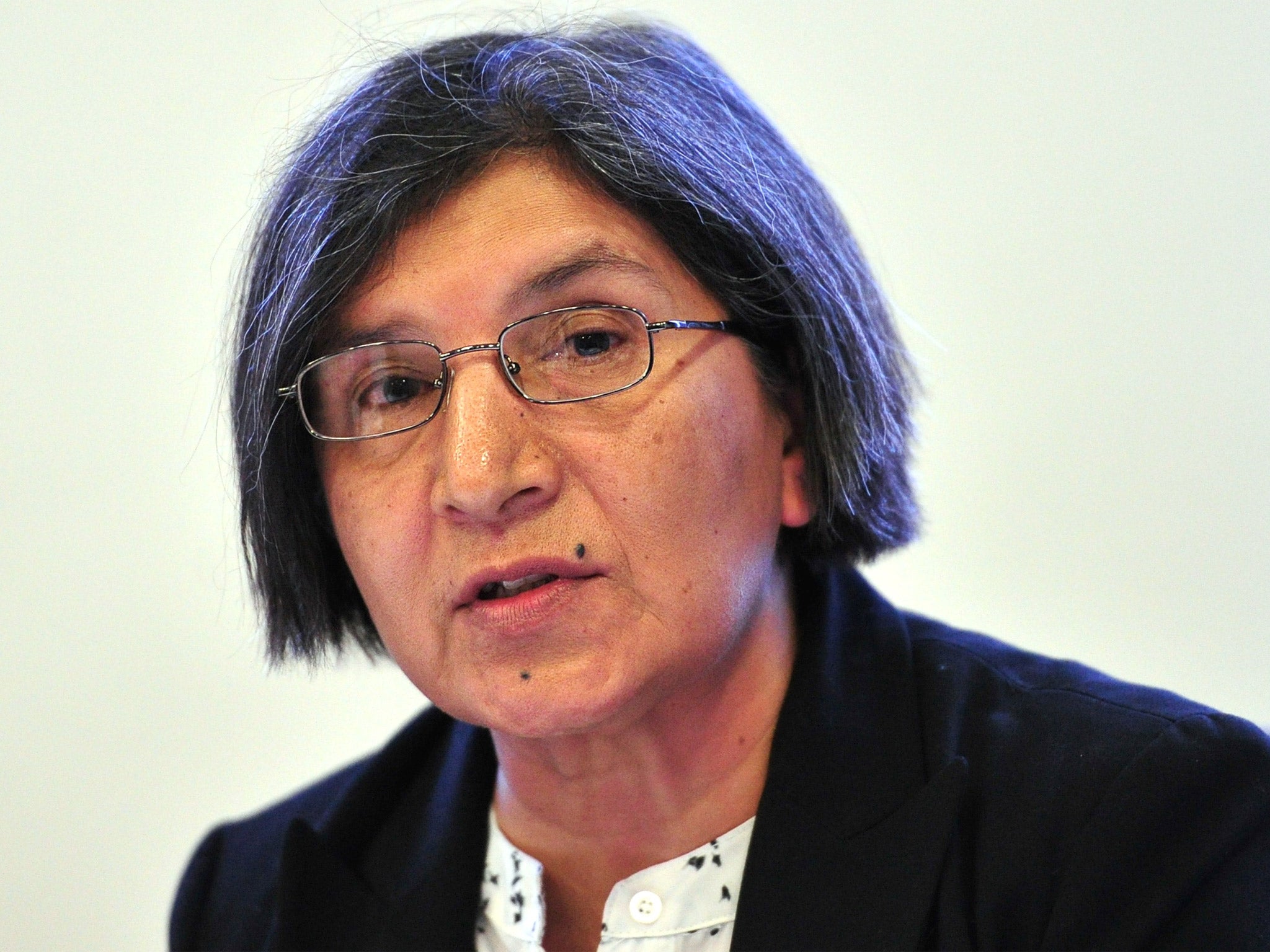We could have had a proper debate about sexism after Rashida Manjoo's comments. Instead, we’re fencing over a media-garbled paraphrase
It doesn’t matter if one thinks Britain is the most sexist country in the world or not

There are straw men being erected everywhere. They are not difficult to knock down. But they are sturdily made, and straw does not degrade quickly, and so their prone forms litter the political landscape, endlessly getting in the way of anything else.
Consider the suggestion that Britain is “the most sexist country in the world”. This, we have been told, is how visiting UN special rapporteur Rashida Manjoo described us when summing up her 16-day visit earlier this week. She may have reason to regret it. When the last UN rapporteur who visited had the temerity to criticise the bedroom tax, Raquel Rolnik – who is from Sao Paulo – found herself described as “loopy” and a Marxist “Brazil nut” who had once practised animal sacrifice. If this form is anything to go by, we can expect to hear more about Ms Manjoo before the end of the week.
The thing is, whatever headline writers and the online outraged are claiming, Ms Manjoo did not say that Britain was the most sexist country in the world. What she said was this: “Have I seen this level of sexist culture in other countries? It hasn’t been so in your face in other countries. I haven’t seen that so pervasively in other countries. I’m sure it exists but it wasn’t so much and so pervasive.” The other countries, it is important to bear in mind, are not all 192 UN member states, but the six that she has already visited as part of her work on violence against women.
I still disagree with her statement. Those countries include Bangladesh, Somalia, and Kyrgyzstan, and even if one acknowledges that Ms Manjoo’s observation was limited to sexist culture as opposed to sexism as a complete system, it seems a bit much. I am a little irritated by the remark – a silly PR failure on a scale that may render the UN representative’s whole visit a waste of time. But I am far more put out by those who have so wildly misinterpreted it. The stretch involved is so considerable that I am inclined to believe that anyone making it can only be doing so on purpose.
The full quote of Ms Manjoo’s that I reproduced above is 42 words long, the bastardised version of it that has done the rounds only seven. But at her press conference on Tuesday, Ms Manjoo read a 4,000-word diagnosis of gender inequality in Britain today, and then took questions. She discussed sexual violence, and the media, and the particular ways that women who are disabled or gay or poor or members of an ethnic minority might be disadvantaged.
She pointed out that she was denied access to Yarl’s Wood, an immigration detention centre for women that has faced heavy criticism for the way it treats its inmates. One might have hoped that Ms Manjoo’s intervention would have helped to focus our attention on these significant matters. Instead, the argument has been dominated by those who consider her presence a diplomatic insult so grave that it overrides all such considerations.
One Daily Telegraph blogger argued that the country is a “gynocracy” because we’ve had a queen since 1952. Once the “most sexist country” line had taken hold, even those responses that acknowledged the existence of sexism often did so in a tone that seemed to long for this awful UN woman to just go home and leave us in peace.
It doesn’t really matter, now, whether one thinks Britain is the most sexist country in the world or not. The point is that anyone who is interested has been forced to take a position on this concocted accusation and its accuracy as a paraphrase, instead of talking about anything that matters. The state of British gender relations becomes a problem that only matters insofar as it dictates our position in some abstract international pecking order. Thus another opportunity for having a proper debate about the position of women in this country, without reference to whether or not women in Saudi Arabia are allowed to drive, goes past.
I suppose we shouldn’t be surprised. When the 140-character version is the only one that counts, this happens all the time: it happened when Raquel Rolnik visited, and we all got obsessed with favelas; it happens when the increasing necessity of food banks is in the news, and all anyone can talk about is whether it matters if the child on the Daily Mirror’s front page is actually American. By the time we've finished arguing, we've forgotten why we started. And, sure enough, here I am, rabbiting on about exactly the topic that I think is beside the point.
This is how it is with straw men. You’ll be trying to make sense of something, and for a second you’ll think you’ve caught a clear glimpse of the horizon – but then you’ll notice another of the buggers, practically on top of you. Even if you get out of its way, you’ll still find your view obstructed when it hits the ground.
Twitter: @archiebland
Join our commenting forum
Join thought-provoking conversations, follow other Independent readers and see their replies
Comments
Bookmark popover
Removed from bookmarks